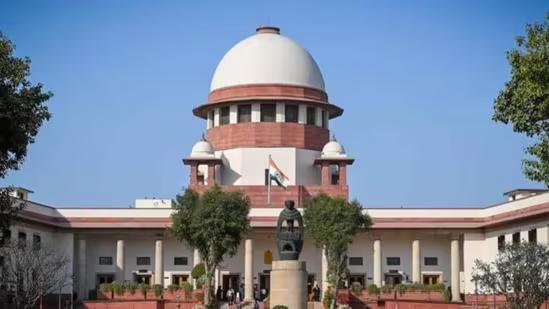
Title: Court Can’t Grant Assent to Bills, Only Guv & Prez Can: Maha to SC
The Supreme Court is set to deliver a crucial judgment on the Presidential Reference, which questions the court’s authority to impose timelines on the Governor and President to deal with bills passed by state assemblies. The Maharashtra government has made a strong argument in the court, stating that only the Governor and President have the power to accord assent to bills, and the court cannot do so.
Senior Advocate Harish Salve, representing the Maharashtra government, made these comments during the hearing of the case. He emphasized that the Constitution clearly defines the roles of the Governor and President in the legislative process, and they are the only authorities empowered to give assent to bills. The court, he argued, does not have the power to usurp this authority.
The Presidential Reference was filed by the Centre, seeking the Supreme Court’s opinion on whether the court could impose timelines on the Governor and President to deal with bills passed by state assemblies. The reference was prompted by a controversy in Maharashtra, where the state government had passed a bill to split the state’s Vidhan Sabha into two parts, and the Governor had not given his assent to the bill.
The Centre, in its reference, argued that the court should have the power to impose timelines on the Governor and President to deal with bills, as it does with other executive functions. However, the Maharashtra government has strongly opposed this view, arguing that the Constitution clearly defines the roles of the Governor and President in the legislative process.
Salve, while making his arguments, pointed out that the Constitution has given specific powers to the Governor and President in relation to the legislative process. The Governor, for instance, has the power to summon or prorogue the state assembly, and to give assent or withhold assent to bills passed by the assembly. The President, similarly, has the power to give assent or withhold assent to bills passed by Parliament.
He argued that the court cannot usurp these powers, as it would be unconstitutional and would undermine the separation of powers between the legislative, executive, and judicial branches of government. He further argued that the court’s role is limited to interpreting the Constitution and the laws made by the legislature, and that it should not interfere with the executive’s role in the legislative process.
The Maharashtra government’s argument is supported by several constitutional experts, who have pointed out that the court’s role is limited to interpreting the Constitution and the laws made by the legislature, and that it should not interfere with the executive’s role in the legislative process.
The judgment of the Supreme Court in this case is likely to have significant implications for the functioning of the legislative process in the country. If the court were to give a ruling in favor of the Centre’s argument, it could lead to a significant erosion of the powers of the Governor and President, and could undermine the separation of powers between the legislative, executive, and judicial branches of government.
However, if the court were to rule in favor of the Maharashtra government’s argument, it would reinforce the powers of the Governor and President, and would uphold the principle of separation of powers. The court’s judgment is therefore eagerly awaited, and is likely to be closely watched by all stakeholders in the country.






